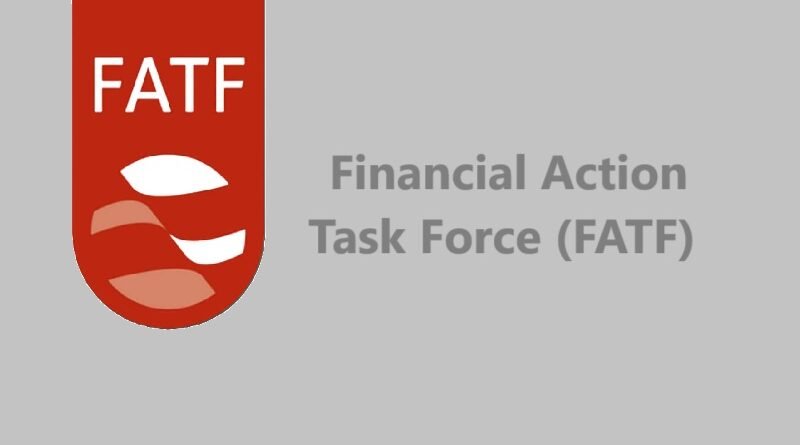What is FATF? A Comprehensive Overview
Introduction
The Financial Action Task Force (FATF) is an intergovernmental organization established to combat money laundering, terrorist financing, and other threats to the integrity of the global financial system. Since its inception in 1989, FATF has played a crucial role in setting international standards and fostering collaboration among nations to prevent financial crimes.
History and Establishment of FATF
FATF was founded during the G7 Summit in Paris in 1989, where world leaders recognized the growing need for a coordinated approach to tackle financial crimes. Initially, its primary focus was on combating money laundering, but following the 9/11 attacks in 2001, FATF expanded its mandate to include countering terrorist financing.
Objectives of FATF
The main objectives of FATF include:
- Combating Money Laundering: Ensuring financial systems are not misused for illicit financial activities.
- Preventing Terrorist Financing: Identifying and disrupting financial networks that support terrorism.
- Countering Proliferation Financing: Addressing the risk of financial support to the proliferation of weapons of mass destruction.
- Establishing Global Standards: Developing international policies and recommendations to combat financial crimes.
- Monitoring Compliance: Conducting evaluations and assessments of member countries’ legal and regulatory frameworks.
FATF Recommendations and Standards
FATF has developed a set of 40 Recommendations, which serve as the international standard for combating financial crimes. These recommendations cover:
- Customer due diligence (CDD) and Know Your Customer (KYC) regulations.
- International cooperation in investigating financial crimes.
- Transparency of financial transactions and beneficial ownership of companies.
- Regulation of virtual assets and cryptocurrencies.
- Freezing and confiscating criminal assets.
FATF Membership and Global Influence
FATF has 39 members, including major economies like the United States, China, India, and the European Union. It also collaborates with regional bodies such as the Asia/Pacific Group (APG) and MONEYVAL to ensure wider implementation of its standards.
FATF’s Grey List and Blacklist
FATF maintains two lists to classify countries based on their compliance with anti-money laundering and counter-terrorist financing (AML/CFT) measures:
- Grey List: Countries under increased monitoring due to deficiencies in their financial regulations. Nations on this list must take corrective measures to avoid further scrutiny.
- Blacklist: Countries that fail to comply with FATF recommendations and pose a high risk to the global financial system. These countries face sanctions and restrictions in global financial transactions.
Impact of FATF Actions
FATF’s actions have a significant impact on countries and financial institutions. Inclusion in the grey list can lead to reduced foreign investments, economic instability, and stricter financial regulations. Being placed on the blacklist can result in severe economic sanctions and isolation from the global banking system.
Notable FATF Cases
Several countries have been subjected to FATF scrutiny over the years:
- Pakistan was placed on the grey list in 2018 due to deficiencies in countering terrorist financing. It was removed in 2022 after implementing required reforms.
- Iran and North Korea remain on the FATF blacklist due to their involvement in illicit financial activities.
- United Arab Emirates (UAE) faced scrutiny but successfully strengthened its financial monitoring systems to comply with FATF regulations.
Challenges and Criticism of FATF
While FATF has been instrumental in combating financial crimes, it faces several challenges:
- Political Influence: Some critics argue that FATF decisions are influenced by geopolitical interests rather than purely technical assessments.
- Evolving Financial Crimes: The rise of digital currencies and decentralized finance (DeFi) presents new challenges that FATF must address.
- Lack of Enforcement Power: FATF provides recommendations but does not have direct authority to enforce them, relying on member nations to implement reforms.
- Delays in Compliance: Many countries take years to implement FATF guidelines, slowing down global progress in combating financial crimes.
Future of FATF
As financial crimes continue to evolve, FATF is expected to:
- Strengthen regulations for digital assets and cryptocurrency transactions.
- Improve cooperation with technology firms and financial institutions to track illicit activities.
- Enhance its monitoring mechanisms to ensure faster compliance by member nations.
- Expand its focus on environmental and human rights-related financial crimes.
Conclusion
The Financial Action Task Force (FATF) plays a vital role in maintaining the integrity of the global financial system. Through its recommendations, compliance monitoring, and international cooperation, FATF continues to combat money laundering, terrorist financing, and other illicit financial activities. While challenges persist, its evolving strategies and global influence ensure that financial crimes are addressed with growing efficiency and effectiveness.


Pingback: World’s Top Organizations: BRICS, G7, G20 - Bharat Articles